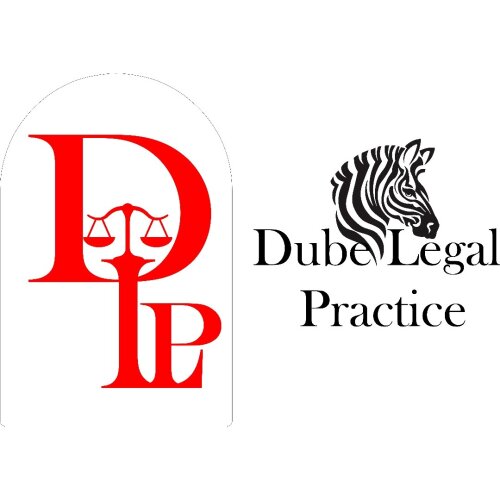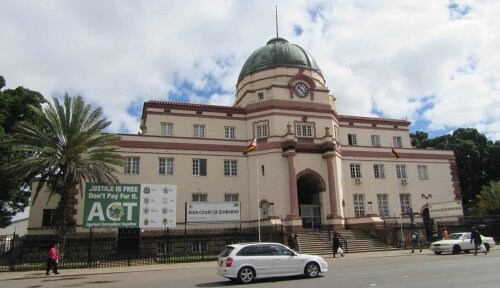Best Faith-Based Law Lawyers in Bulawayo
Share your needs with us, get contacted by law firms.
Free. Takes 2 min.
List of the best lawyers in Bulawayo, Zimbabwe
About Faith-Based Law in Bulawayo, Zimbabwe
Faith-Based Law in Bulawayo, Zimbabwe refers to legal matters that arise from religious beliefs, practices, and institutions. This area of law typically intersects with personal status issues such as marriage, divorce, inheritance, and charitable activities managed by religious organizations. In Zimbabwe, religious freedoms are constitutionally protected, allowing communities to manage certain aspects of their personal affairs according to their faith traditions. However, all faith-based practices must align with the national legal framework. In Bulawayo, a culturally diverse city, multiple religious communities such as Christian, Muslim, and traditional African faiths coexist, each with specific legal considerations relating to their communal and organizational life.
Why You May Need a Lawyer
There are various situations where assistance from a lawyer with knowledge of Faith-Based Law could be essential. You may need a legal professional if:
- You are dealing with a marriage or divorce that must be recognized both religiously and legally.
- You have questions about inheritance and wills that are influenced by religious law or tradition.
- You represent a faith-based organization that requires advice on registration, governance, or regulatory compliance.
- You are navigating disputes involving religious property or religious employment.
- You feel your right to religious freedom has been infringed upon by authorities, employers, or other individuals.
- Your religious group needs to interact with government authorities for permits, property acquisition, or charity work.
- You are concerned about discrimination or unequal treatment on religious grounds.
Expert legal advice ensures that your faith-related rights and responsibilities are properly recognized under Zimbabwean law, and that all actions comply with both secular and religious legal requirements.
Local Laws Overview
The legal landscape for Faith-Based Law in Bulawayo, Zimbabwe is shaped by several key legislative and constitutional provisions:
- Constitutional Rights: Zimbabwe’s Constitution guarantees freedom of religion, belief, and conscience. The state is secular but recognizes religious diversity and the role of traditional leaders in certain communities.
- Marriage and Family Law: While marriages can be solemnized according to religious rites, their state recognition requires compliance with the Marriages Act. Customary and religious marriages may have different legal implications compared to civil marriages, especially regarding divorce and inheritance.
- Charity and Nonprofit Regulation: Faith-based organizations, including churches, mosques, and religious charities, typically register with government bodies such as the Registrar of Trusts or Private Voluntary Organizations. These entities must adhere to reporting and governance standards.
- Education and Employment: Religious schools and faith-based employers operate under national guidelines but may apply faith-oriented policies, so long as they comply with anti-discrimination and labor laws.
- Dispute Resolution: While religious and traditional courts may offer dispute resolution among members, public courts retain ultimate authority, especially in cases involving criminal law or civil rights.
Frequently Asked Questions
What is Faith-Based Law in Zimbabwe?
Faith-Based Law refers to legal matters that involve religious beliefs, institutions, and activities. This can include marriage, inheritance, charity work, and religious freedoms, always balanced with national laws.
Can religious marriages be legally recognized in Bulawayo?
Yes, religious marriages can be recognized, but only if they are registered with civil authorities in accordance with the Marriages Act. Failure to register may affect legal rights regarding property, children, and inheritance.
How does inheritance work under Faith-Based Law?
Inheritance disputes may arise when religious customs differ from Zimbabwean succession laws. While courts consider religious wishes, they ultimately apply national inheritance laws unless there is a valid will.
Are faith-based organizations required to register?
Yes, most religious organizations must register as trusts, associations, or private voluntary organizations. Registration ensures legal recognition and compliance with regulatory requirements.
Can a person demand work leave for religious reasons?
Employees have the right to request leave for religious observances, but this is subject to employer policies, operational needs, and labor laws. Disputes may be addressed by labor courts if necessary.
What should I do if my religious freedom is violated?
If you believe your religious rights have been violated, seek advice from a lawyer familiar with constitutional law, and consider submitting a complaint to relevant authorities such as the Zimbabwe Human Rights Commission.
Are faith-based educational institutions regulated?
Yes, religious schools must meet government standards related to curricula, child protection, and health and safety, but may include faith-specific instruction with parent consent.
How are disputes within religious communities resolved?
Many disputes are settled internally using religious or traditional mechanisms, but civil courts have jurisdiction if issues pertain to criminal matters, constitutional rights, or property disputes.
Can faith-based organizations own property?
Registered faith-based organizations can own, acquire, and manage property in Zimbabwe, subject to compliance with property laws and their governing documents.
Do I need a lawyer for a faith-based legal issue?
While some matters may be resolved internally, complex cases or situations involving national laws often require professional legal guidance to protect your rights and ensure lawful compliance.
Additional Resources
Several resources are available for individuals and organizations seeking more information or assistance with Faith-Based Law in Bulawayo:
- Zimbabwe Human Rights Commission - Handles complaints about human rights violations, including religious freedoms.
- Law Society of Zimbabwe - Provides referrals to qualified lawyers experienced in Faith-Based Law.
- Registrar of Trusts and Private Voluntary Organizations - Responsible for registering churches, mosques, and other faith-based entities.
- Bulawayo City Council Legal Department - Can offer guidance regarding by-laws affecting religious organizations and events.
- Council of Zimbabwe Churches and similar interfaith bodies - Offers advice and peer support for religious groups.
Next Steps
If you need legal help with a faith-based issue in Bulawayo, Zimbabwe, consider these steps:
- Clearly identify the issue, including all parties involved and any documents or religious policies relevant to your situation.
- Contact a lawyer with experience in both local and faith-based laws. You can seek referrals from the Law Society of Zimbabwe or through community leaders.
- Gather supporting documentation, such as marriage certificates, minutes of religious meetings, or property ownership records.
- Arrange a consultation with your lawyer to discuss your rights, possible solutions, and next steps.
- In urgent cases, such as discrimination or threats to safety, contact relevant authorities or human rights bodies immediately.
Taking informed action early can help ensure that your religious interests and legal rights are fully protected in accordance with Zimbabwean law and the specific needs of faith communities in Bulawayo.
Lawzana helps you find the best lawyers and law firms in Bulawayo through a curated and pre-screened list of qualified legal professionals. Our platform offers rankings and detailed profiles of attorneys and law firms, allowing you to compare based on practice areas, including Faith-Based Law, experience, and client feedback.
Each profile includes a description of the firm's areas of practice, client reviews, team members and partners, year of establishment, spoken languages, office locations, contact information, social media presence, and any published articles or resources. Most firms on our platform speak English and are experienced in both local and international legal matters.
Get a quote from top-rated law firms in Bulawayo, Zimbabwe — quickly, securely, and without unnecessary hassle.
Disclaimer:
The information provided on this page is for general informational purposes only and does not constitute legal advice. While we strive to ensure the accuracy and relevance of the content, legal information may change over time, and interpretations of the law can vary. You should always consult with a qualified legal professional for advice specific to your situation.
We disclaim all liability for actions taken or not taken based on the content of this page. If you believe any information is incorrect or outdated, please contact us, and we will review and update it where appropriate.










